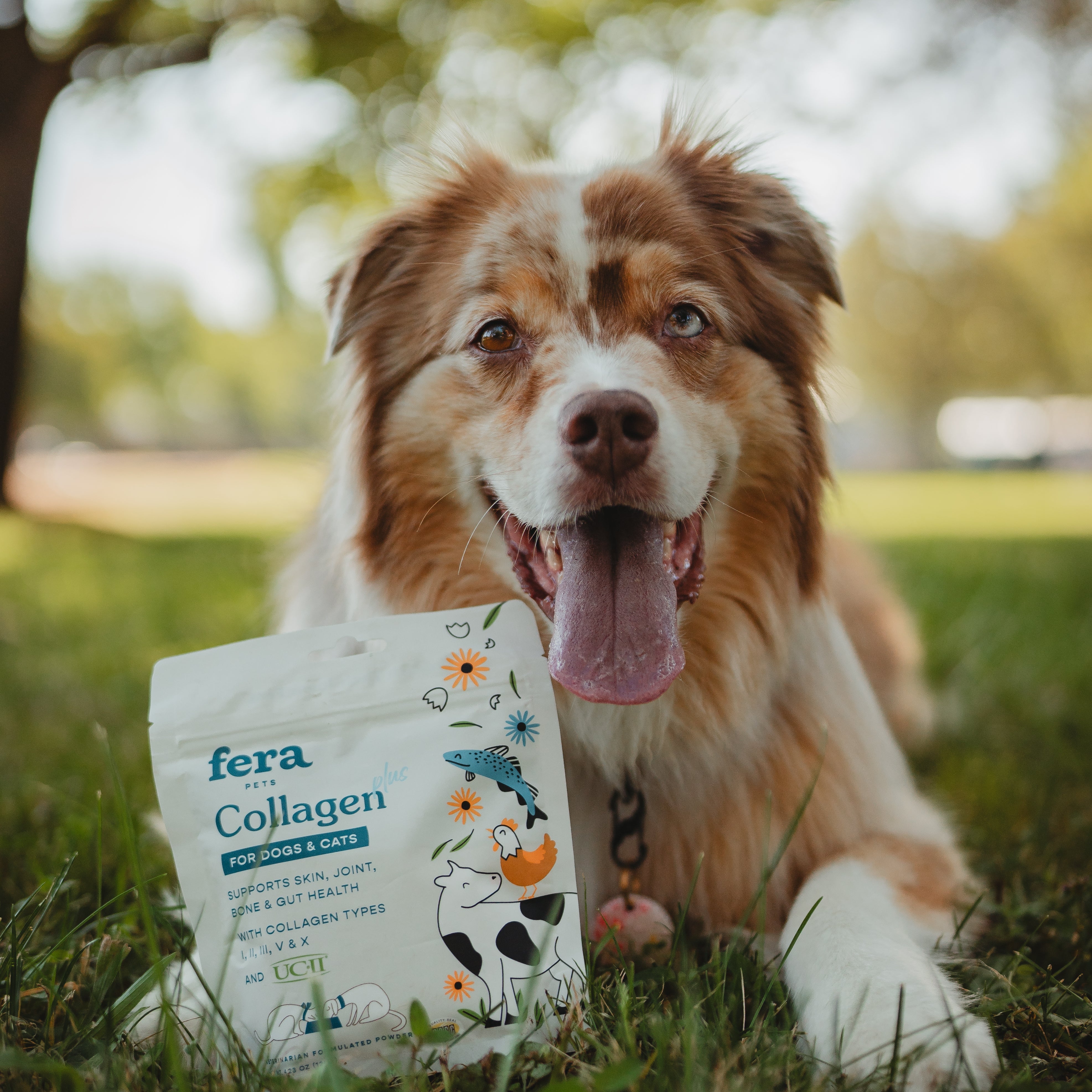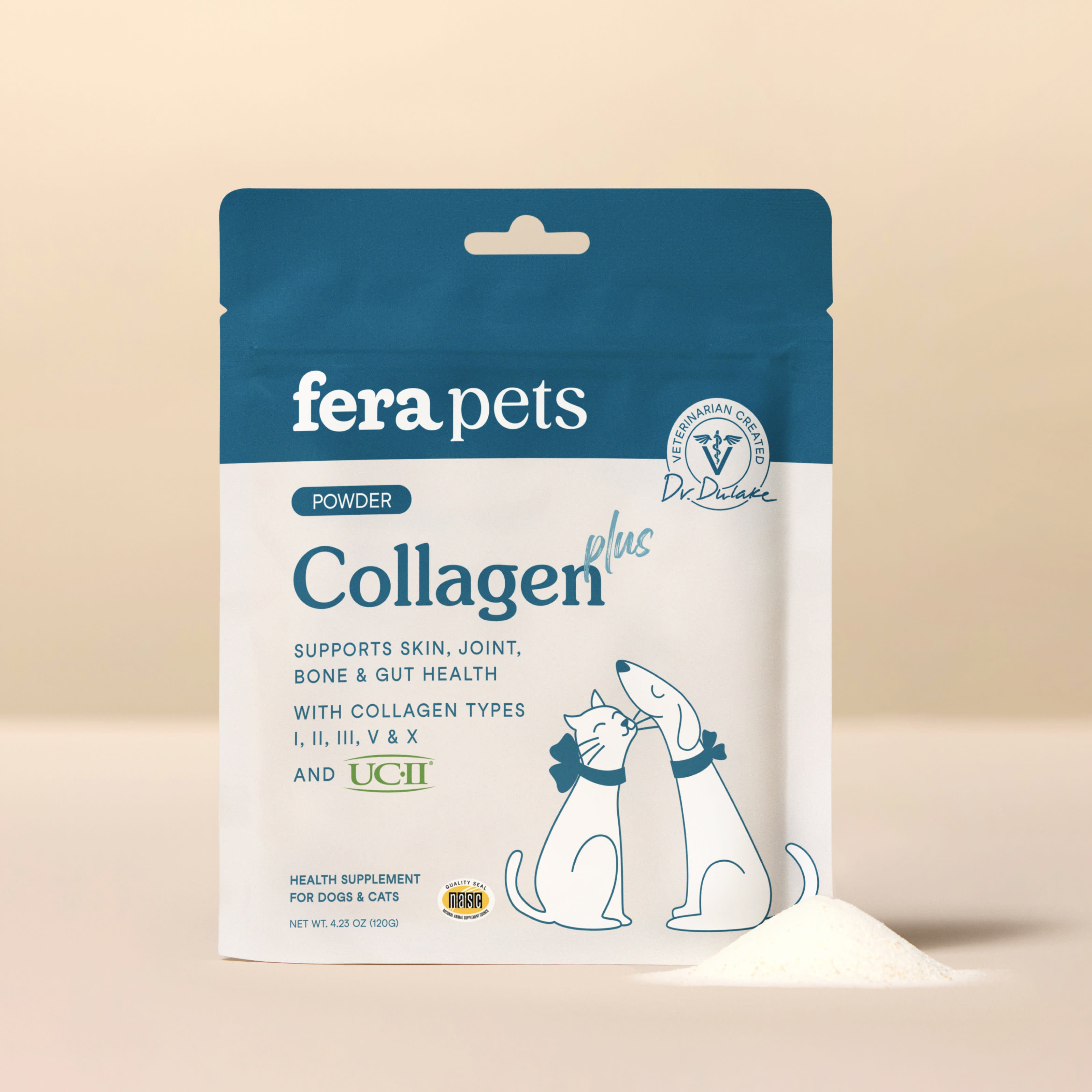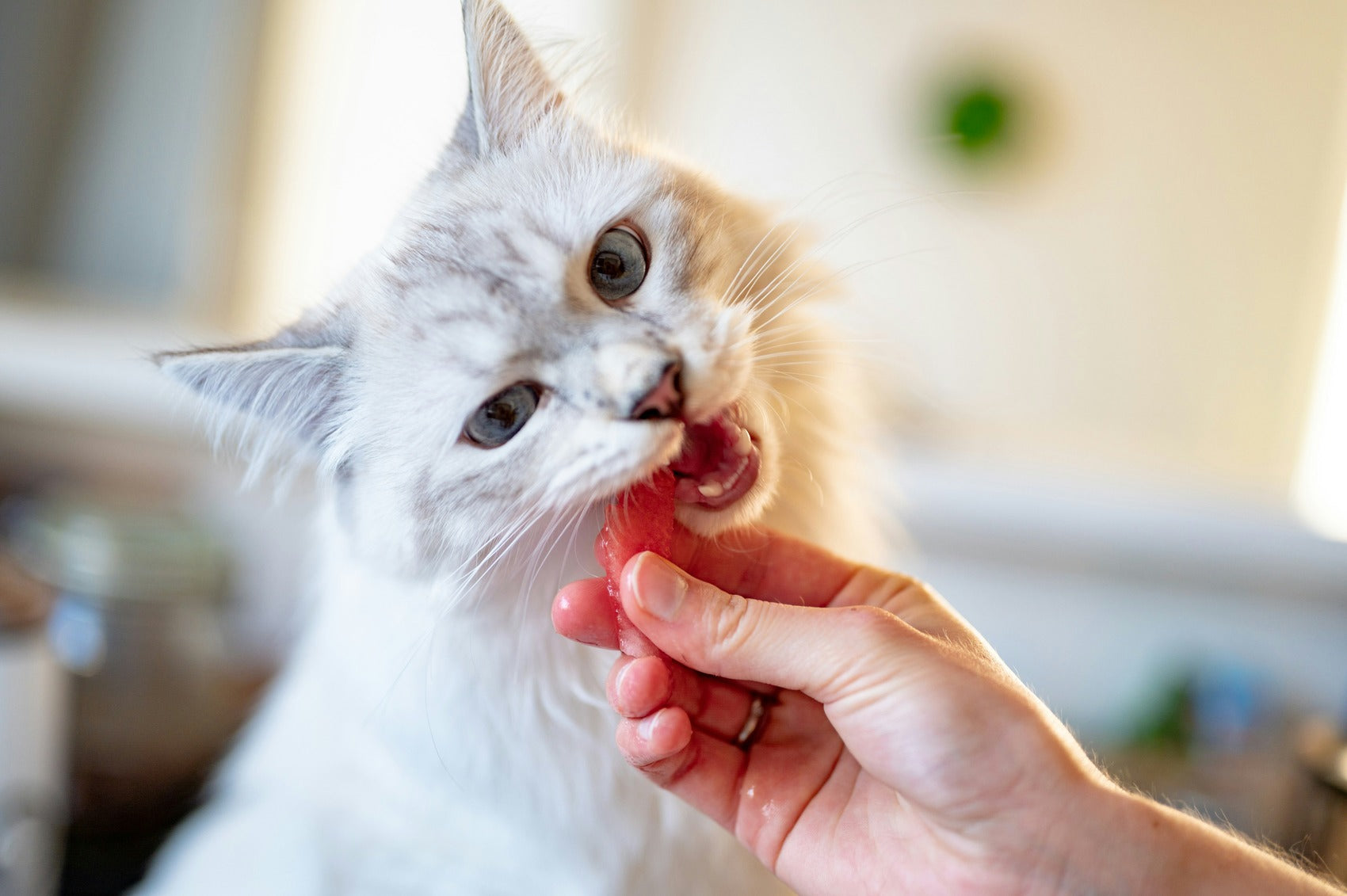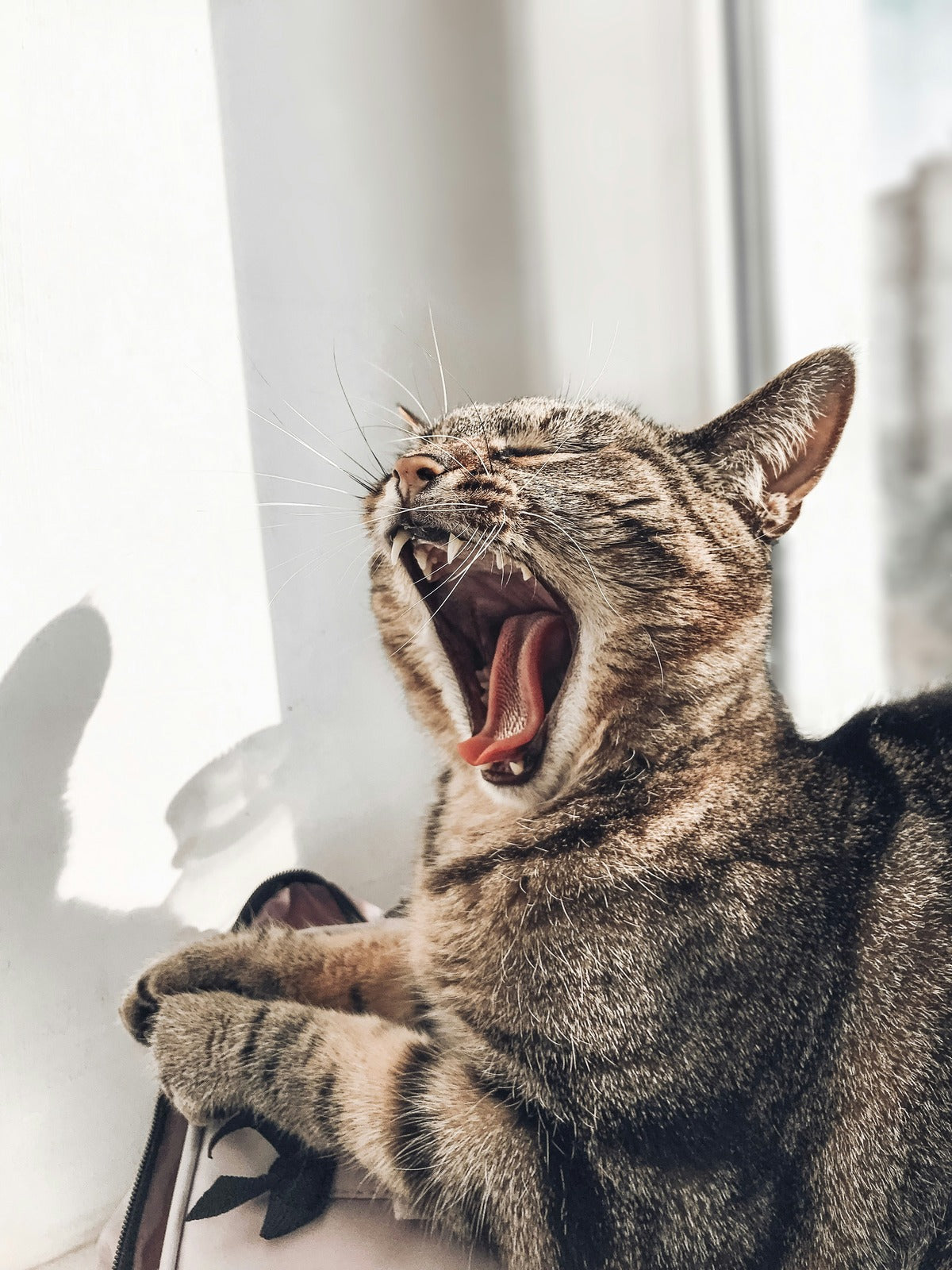Undenatured Type II Collagen: How It Can Be Beneficial to Your Pet’s Health
As your pet ages, long-term damage to the joints and cartilage that holds them together can lead to problems. Luckily, supplementation with a unique ingredient, undenatured type-II collagen, or UC-II® is changing things. Here’s how this revolutionary supplement can help your dog or cat.
Undenatured Type II Collagen: How It Can Be Beneficial to Your Pet’s Health
As your pet ages, long-term damage to the joints and cartilage that holds them together can lead to problems. This includes osteoarthritis, hip and elbow dysplasia, and more. In addition, it can lead to painful walks, reluctance to stand up and move around, and a loss of excitement for activities they may have enjoyed. Luckily, supplementation with a unique ingredient, undenatured type-II collagen, or UC-II® is changing things. Here’s how this revolutionary supplement can help your dog or cat.
What Is UC-II ®?
There are several different types of collagen that make up different parts of your pet’s body. One of them is type II collagen. It makes up the elastic cartilage of the joints, such as between the ribs, the ear flap, and on your pet’s nose. Other types of collagen, such as type I are involved in the structure of the skin, joints, and ligaments. Type III collagen helps with smooth muscle support in the organs, GI tract, and blood vessels. Other collagen types, like type V and X, maintain the structure of the cornea, placenta, and articular cartilage of the joints.
Undenatured type-II collagen is a form of collagen that is derived from chicken sternum elastic cartilage, where type II collagen is abundant [1]. The cartilage is then broken down via a low-temperature non-enzymatic process. This turns the cartilage into a usable form of collagen without affecting its biological activity. The benefit of this source of collagen is that it is naturally found in the body. It can also work to elicit an immune response from the body, encouraging the body to repair its own joints when activated.
How Does UC-II ® Work?
UC-II ® works in four steps to increase collagen production in the joints of your pet’s body. First, it travels to intact immune cells near the gut called Peyer’s patches. Peyer’s patches provide key immunity support in the body through regulation of the gut flora. They also help activate immune responses against infections, as well as break down potentially ingested pathogens in the GI tract.
After traveling to the Peyer’s patches, UC-II ® helps activate immune regulatory T-cells to recognize type II collagen. Regulatory T-cells also help limit chronic inflammation and reduce the effects of autoimmune diseases. Next, the regulatory T-cells move to the joint cartilage. There, they release bioactive compounds such as TGF-beta and IL-10 that signal the body to start rebuilding and repairing joint cartilage.
UC-II ® has shown great promise in helping boost joint cartilage health in pets. When used with other joint supplements, such as glucosamine and chondroitin, it helped inflammation [2]. A second study found that UC-II ® was as effective as current prescription joint inflammation medications, with fewer side effects [3].
When Would It Be Useful to Supplement UC-II ®?
As your dog or cat ages, their ability to naturally produce collagen decreases. This occurs everywhere in the body, affecting all types of collagen. Arthritis and degenerative diseases can also affect the body and reduce its ability to repair damage over time. In younger pets, genetic conditions such as hip and elbow dysplasia can lead to early pain and degenerative disease in those joints.
By including UC-II ® as part of your dog or cat’s joint supplement, you can help. UC-II ® supports their body’s ability to maintain joint cartilage. As with any new supplement, it’s always best to speak with your vet before getting started. This can help prevent any adverse effects and medication interactions.
How a Collagen Supplement Can Help
Collagen supplements work by providing a much-needed source of collagen. They also help to boost your dog or cat’s natural collagen production in key parts of the body, including the joints. In addition, other ingredients, such as eggshell and vitamin C can help to boost natural collagen production. These extra ingredients work by providing the right building blocks of nutrients for collagen formation. When purchasing a collagen supplement, you want to look for one that contains collagen, a source of UC-II ®, and these key ingredients. This will help the body support its own joint repair and function.
Fera Pet’s Collagen Plus offers a one-two punch of ingredients. It provides beneficial collagen through upcycled bovine and Fera’s collagen sources, while also boosting the body’s natural production with UC-II ®. In addition, other ingredients such as bamboo silica, vitamin C, and eggshell provide the needed building blocks for collagen production. And, not only does it help with joint cartilage collagen, it can also benefit the collagen in your pet’s skin and coat. Collagen Plus comes in an easy-to-give powder form, so it can be added to your dog or cat’s wet food, kibble, or homemade diet with ease.
UC-II ® is a great supplement to add if your dog or cat suffers from osteoarthritis, hip or elbow dysplasia, or other aging-related joint pains. It can help promote healthy joint function, skin health and mobility for all the years of fun ahead! When looking for a joint supplement, consider UC-II ®. It’s a great way to boost your pet’s overall health and happiness with a natural, safe supplement.
Sources:
[1] Lugo, J. P., Saiyed, Z. M., & Lau, F. C. (2013, October 24). Undenatured type II collagen (UC-II®) for Joint Support: A randomized, double-blind, placebo-controlled study in Healthy Volunteers. Journal of the International Society of Sports Nutrition. BioMed Central. Accessed 10 June 2024 https://jissn.biomedcentral.com/articles/10.1186/1550-2783-10-48
[2] D’Altilio, M., & Peal, A. (2007). Therapeutic efficacy and safety of undenatured type II collagen singly or in combination with glucosamine and chondroitin in Arthritic Dogs. Toxicology Mechanisms and Methods. Accessed 10 June 2024. https://pubmed.ncbi.nlm.nih.gov/20020968/
[3] Stabile, M., & Samarelli, R. (2019, September 4). Evaluation of the effects of undenatured type II collagen (UC-II) as compared to robenacoxib on the mobility impairment induced by osteoarthritis in dogs. MDPI. Accessed 10 June 2024. https://www.mdpi.com/2306-7381/6/3/72





